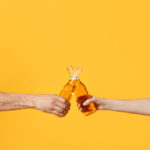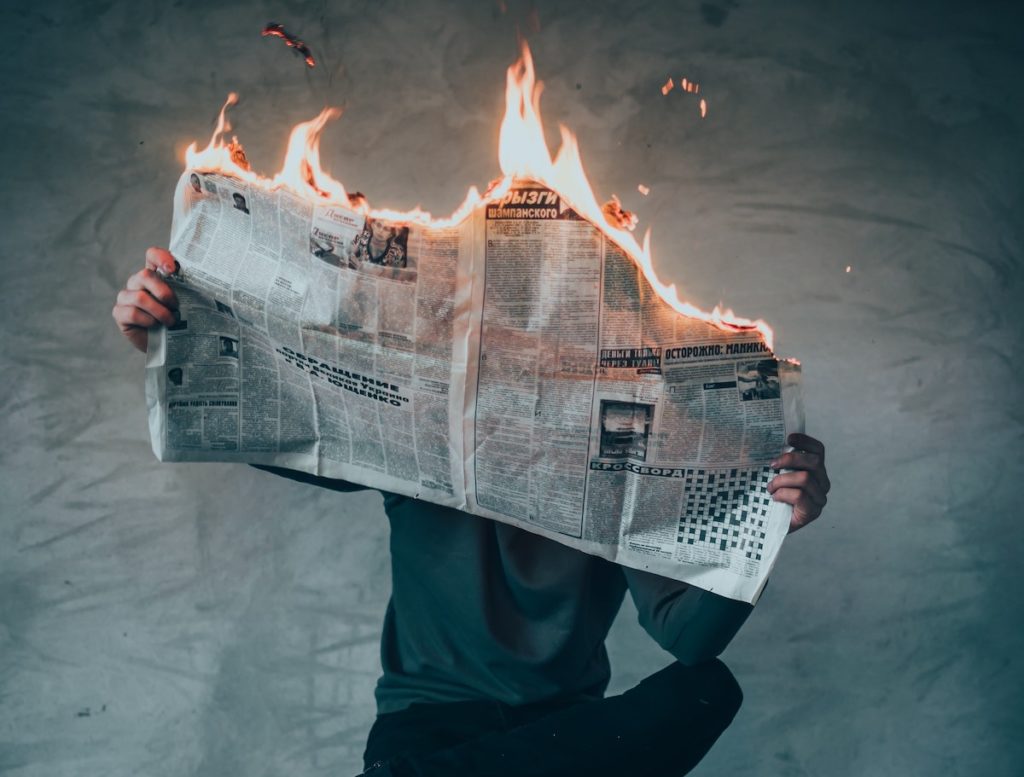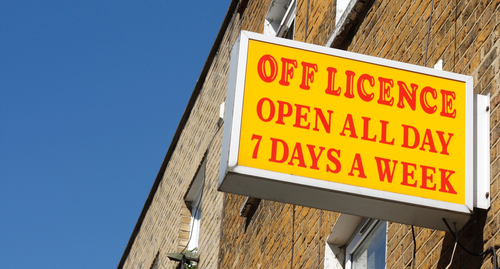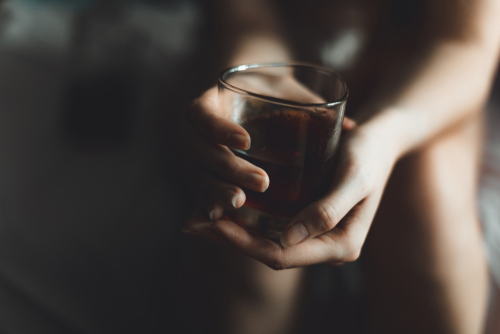
We can now add alcohol to the list of things we seem to be stockpiling in anticipation of what goods might be in short supply as a result of Covid-19. Retail sales at the end of March show a fifty percent plus rise in alcohol purchases. What we can’t be sure about is whether this reflects a rise in consumption or just a hoarding of alcohol with no change in consumption.
Two recent studies suggest it is the former:
- A study of healthcare workers during an infectious disease outbreak found that being quarantined was associated with higher alcohol intake (Brooks et al, 2018)
- A neat qualitative study from Holland found evidence that people drank more when exposed to bad news via the media (de Hoog, 2019), that reflects our current situation with Covid-19.
It may come as no surprise to learn that daily exposure to negative news also has a negative effect on those that are exposed. The current Covid-19 pandemic appears to be filling every news outlet and has 24-hour rolling reporting on television. It’s clearly a good idea to stay informed about this virus, but this needs to be balanced with other activities, otherwise the risks to our mood, outlook and general mental health are elevated.

Daily exposure to negative news has a negative effect on those that are exposed. Try not to stay glued to the news feeds everyone!
Lockdown and alcohol: a ticking time bomb?
But it’s not just news that we’re saturated with, it is also prompts to use alcohol. It’s difficult to go anywhere without encountering alcohol advertising or promotions. Add to this some mixed policy messaging from those with influence. The UK government has deemed off-licences as ‘essential’ retailers while the World Health Organisation has stated that alcohol should not be used as a coping mechanism during the pandemic.
The alcohol industry has proved to be skilled and effective at influencing policy in their favour. So it is, yet again, during this pandemic. Despite alcohol lowering immunity, the government has signalled that alcohol is essential by giving off licences the same status as pharmacies. Essentially sanctioning self-medication with alcohol. All the ingredients are there that will lead some people to do exactly that: boredom, isolation, anxiety and low mood.

The government has signalled that alcohol is essential by giving off licences the same status as pharmacies.
Alcohol and Covid-19: who will be most affected?
The risk to health both physically and psychologically from alcohol is low for many, but there are some groups that we should be concerned about during this period:
- It could be life threatening for some people who are physically dependent to abruptly stop drinking alcohol.
- For others reducing or having a forced break from alcohol may not be life threatening, but could be extremely uncomfortable as they experience intense withdrawal symptoms.
- Then there are those who drink to try and cope with depression and/or anxiety. Although it is often difficult to establish the direction of the relationship between mental health and problem use of alcohol they go together hand in glove. Both aspects will be susceptible to the atmosphere and environment that Covid is creating.
Dry-Covid?
Unfortunately, at a time when many people will need support with their mental health and alcohol use, the services able to provide this have been cut to the bone. A decade of budget cuts has all but decimated the speciality of addiction psychiatry, unthinkable in any other area of medicine.
We could all probably benefit from thinking about a ‘Dry-Covid’, but that’s a choice we are privileged to have. For many, this isn’t a choice and they have few options in getting the specialist help they will need to remain safe. Who knows how long this pandemic will last, but it could be a trigger or epiphany for some to change the relationship they have with alcohol. Let’s hope they can be supported in a timely way, otherwise self-medication will be their only option.

Who knows how long this pandemic will last? Will it help change the relationship that some of us have with alcohol?
Links
Further reading
Brooks SK, Dunn R, Amlôt R, Rubin GJ, Greenberg N. (2018) A Systematic, Thematic Review of Social and Occupational Factors Associated With Psychological Outcomes in Healthcare Employees During an Infectious Disease Outbreak. J Occup Environ Med. 2018 Mar;60(3):248-257. doi: 10.1097/JOM.0000000000001235.
de Hoog, N. and Verboon, P., 2019. Is the news making us unhappy? The influence of daily news exposure on emotional states. British Journal of Psychology. https://onlinelibrary.wiley.com/doi/full/10.1111/bjop.12389
Francesca Bentivegna, The never-ending story: the problematic relationship between youth anxiety and later alcohol use. Mental Elf, 6th January 2020 – https://www.nationalelfservice.net/mental-health/anxiety/anxiety-and-alcohol/
Natasha Clarke, Local alcohol licencing policies associated with reduction in alcohol-related hospital admissions. Mental Elf, 25th February 2018 – https://www.nationalelfservice.net/mental-health/substance-misuse/local-alcohol-licensing-policies-associated-with-reduction-in-alcohol-related-hospital-admissions/
David Gunnell, Population-based approaches to improving mental health: a view from the USA. Mental Elf, 10th February 2020 – https://www.nationalelfservice.net/treatment/mental-illness-prevention/population-based-approaches-to-mental-health/
Olivia Maynard, New alcohol guidelines: what you need to know. Mental Elf, 9th of February 2016 – https://www.nationalelfservice.net/mental-health/substance-misuse/new-alcohol-guidelines-what-you-need-to-know/
Photo credits
Photo by Elijah O’Donnell on Unsplash
